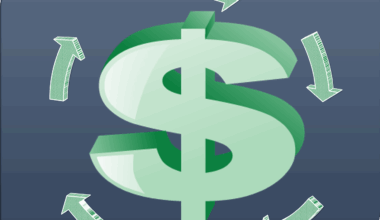Planning for Unexpected Expenses: Strategies That Work
Unexpected expenses can significantly disrupt financial stability. Whether it’s a sudden medical bill, home repair, or car trouble, having a strategy for these situations is essential. Planning ahead and establishing a financial cushion can help you navigate these challenges without undue stress. Building financial resilience begins with understanding your financial situation and creating a robust plan to address potential risks. One effective strategy is to track your expenses and identify areas where you can cut back in order to allocate funds for emergencies. By systematically saving for unexpected costs, you empower yourself to respond adequately when they arise. Aim to save at least three to six months of living expenses in an easily accessible account dedicated to emergencies. This way, when unforeseen circumstances occur, you won’t have to rely solely on credit cards or loans, which often come with high interest rates. Instead, you can use your established emergency fund to cover essential expenses. Remember, the goal is to ensure that minor financial setbacks do not escalate into major problems that affect your financial well-being.
Understanding Your Financial Landscape
To effectively manage unexpected expenses, begin by evaluating your current financial situation. This involves analyzing your income, expenses, debts, and savings. Create a detailed budget that outlines all financial commitments clearly. Understanding your spending habits can reveal patterns that may contribute to financial strain. For instance, consider areas where you might be overspending, such as dining out or subscription services. By identifying these trends, you can better adjust your budget to prioritize saving for unexpected expenses. Furthermore, consider the importance of credit scores. A good credit rating gives greater borrowing flexibility in emergencies but can become a burden if mismanaged. Regularly monitor your credit report and score for potential improvements. Additionally, develop a spending plan that includes discretionary and necessary expenses. By ensuring that necessary costs are covered, you create a buffer that allows for better handling of unforeseen financial burdens. Proactive financial management enhances your ability to weather unexpected financial storms with minimal fallout.
Incorporating an emergency fund into your financial planning is instrumental in building resilience. Establishing a dedicated savings account intended solely for unforeseen expenses is crucial. Regularly contribute to this fund, even if the amounts are small. Over time, these contributions accumulate, creating a financial safety net. Begin by setting a realistic target for your emergency fund based on your monthly expenses. This figure typically ranges between three and six months’ living expenses. While it can be challenging to save, even a small amount can make a difference. Reassess your monthly budget to create space for these contributions. Once the fund is established, avoid using it for non-emergency purchases. This account should only be accessed when truly necessary, such as unexpected medical bills or major vehicle repairs. Sticking to this discipline ensures your financial buffer remains intact. Moreover, periodically review and adjust your savings goals as your lifestyle changes and financial needs evolve. As inflation and other factors impact your expenses, your emergency savings target might need updating to maintain its relevance.
Auto-Enroll in Savings Plans
Consider implementing automatic transfers to your emergency savings account to simplify the saving process. Automating your savings can remove the temptation to spend unallocated funds. When you make savings an automatic process, you can build that financial security without the daily hassle of remembering to deposit manually. Set up a fixed monthly amount that transfers from your checking to your emergency fund. This can boost your saving efficiency while reducing reliance on willpower alone. Additionally, take advantage of employer-sponsored savings plans if available. Some workplaces offer programs that support employees’ financial health, including savings options geared toward emergencies. Participating in these programs can provide extra motivations, such as employer matching contributions. This way, you increase your savings potential while benefitting from your employer’s support. Furthermore, consider utilizing a high-yield savings account to maximize interest on your emergency funds. Even a small interest can lead to significant returns over time, enhancing your financial cushion for unexpected situations.
Financial coaching can help you develop effective strategies to build resilience against unexpected expenses. Working with a financial coach allows you to gain personalized insights into your financial habits. Coaches can provide tailored advice on budgeting, saving, enhancing credit scores, and investing wisely. They help you identify weak points in your financial plan, and propose actionable solutions. One main focus of financial coaching is empowering individuals to break unproductive financial cycles. Educating you about managing money effectively is crucial, especially with unexpected expenses. Regular sessions can reinforce the discipline required to maintain an emergency fund, fostering long-term financial health. Financial coaches also stress the importance of setting realistic financial goals. By aligning your spending and saving habits with these objectives, you enhance your financial stability. Furthermore, coaches can guide you through creating a personalized financial plan that accounts for unforeseen costs. This includes properly categorizing potential expenses and prioritizing allocations to ensure accessible funds when needed. Embracing coaching can be a significant step toward mastering financial resilience amidst uncertain circumstances.
Reassessing Insurance Policies
Regularly reviewing your insurance policies is integral to preparedness for unexpected expenses. Health, auto, home, and life insurance are crucial components of a comprehensive financial plan, protecting you from significant financial burdens. Review each policy at least annually to ensure they are sufficient for your current needs. Assess whether you have adequate coverage to avoid financial strain during emergencies. Inadequate insurance can lead to out-of-pocket expenses that ultimately strain your emergency funds. Don’t hesitate to consult with insurance agents to discuss potential adjustments based on your changing financial situation. Additionally, consider bundling policies to save money on premiums. Many providers offer discounts for combining various insurance plans, which can help free up money for other savings goals. When evaluating your options, keep in mind that investing in higher deductibles may lower monthly premiums but can lead to unexpected costs during emergencies. Carefully weigh the pros and cons of all insurance plans to create the best policy for your needs. Prioritizing coverage can help mitigate the potential fallout from unexpected financial situations.
Finally, staying informed about personal finance trends will enhance your ability to manage unexpected expenses proactively. Engaging in financial education through books, podcasts, and workshops can provide valuable insights into money management. Knowledge is your best defense when it comes to building resilience against financial challenges. Furthermore, consider joining financial groups or forums to exchange strategies with like-minded individuals. These platforms can serve as excellent resources for learning from others’ experiences, providing valuable lessons. Additionally, staying updated on economic conditions can help you anticipate shifts that might affect your finances, such as inflation or market changes. Adapting to these factors is essential for maintaining financial stability. Engage in continuous education to stay ahead of potential financial pitfalls, empowering yourself with the knowledge to make informed decisions. By remaining proactive and continually learning about finance, you create a secure foundation for addressing unexpected expenses. Ultimately, developing a resilient financial mindset is key to ensuring your preparedness for whatever challenges lie ahead.


